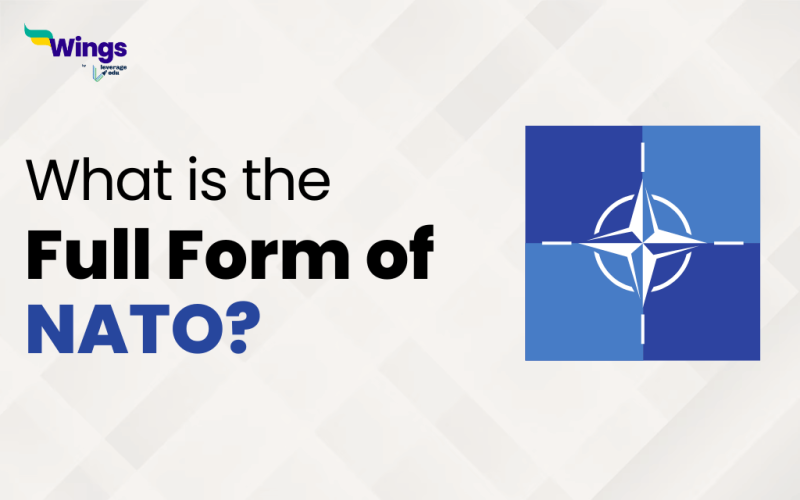The full form of NATO is the North Atlantic Treaty Organization. It refers to an important alliance formed with the primary goal of fostering collective security as well as promoting collaboration among its member nations. This organization was formed in the aftermath of World War II. It has now significantly grown into a vital force in ensuring world peace and stability. Its basic ideals and unwavering commitment to defense have cemented its status as one of the world’s most powerful and effective military alliances.
Also Read: What is the full form of SRC?
History of NATO
Table of Contents [show]
NATO was formally created on April 4, 1949, when the North Atlantic Treaty was signed in Washington, D.C. NATO founding members include Belgium, Canada, Iceland, Denmark, the UK, the US, Luxembourg, the Netherlands, France, Italy, and Portugal. Years of debates and negotiations amongst Western countries trying to offset the threat posed by the Soviet Union and its expansionist ambitions culminated in the treaty. NATO’s major foundation concept was mutual defence: an attack on any member nation was interpreted as an attack on the entire alliance, prompting a collective reaction.
Also Read: What is the full form of KYC?
Structure and Membership
The NATO headquarters are in Brussels, Belgium. The North Atlantic Council (NAC) is the organization’s decision-making body. It is made up of delegates from each member country and acts as the primary venue for consultation and decision-making. NATO’s membership has expanded dramatically since its foundation, from 12 original members to 30 countries from North America and Europe today. Shared democratic values, a commitment to democratic civil-military relations, and the ability to contribute to the alliance’s collective defense are all required for membership.
Also Read: What is the full form of CDMA?
Evolution and Post-Cold War Era
NATO’s priorities shifted after the Cold War ended. Rather than focusing primarily on external dangers, the organisation began to promote beneficial partnerships with past foes and governments in other regions. NATO is also involved in peacekeeping operations, humanitarian aid, and crisis management around the world.
Also Read: What is the full form of TDR?
What is the Purpose of NATO?
- In simple words, the purpose of NATO is to ensure the freedom and security of its members.
- Moreover, it also promotes numerous democratic values and provides a platform to discuss defense and security-related issues.
- This subsequently helps in building a sense of trust among member nations and prevent potential conflicts.
Today’s NATO
NATO continues to adapt to new concerns in the twenty-first century, such as terrorism, cyber threats, and regional instability. It remains dedicated to establishing a rules-based international order and deepening transatlantic ties. The alliance is also important in supporting the development of defence capabilities, exchanging intelligence, and increasing the interoperability of member nations’ armed forces.
Also Read: What is the full form of ROC?
With time NATO has proved its relevance and resilience in tackling growing security concerns and fostering international collaboration for almost seven decades. NATO, via its sustained commitment to collective defense and alliances, serves as a strong bulwark against insecurity and threats, fostering a safer and more secure world for all of its members and beyond.
Popular Full Forms
We hope this blog has helped you understand the full form of NATO and everything related to it. If you want to know more, find the 300+ full forms list on our blog. In the world of short forms, you can rely on the Leverage edu page to know about more full forms like this! Connect with us study abroad experts to achieve your international dream today!
 One app for all your study abroad needs
One app for all your study abroad needs















 45,000+ students trusted us with their dreams. Take the first step today!
45,000+ students trusted us with their dreams. Take the first step today!
